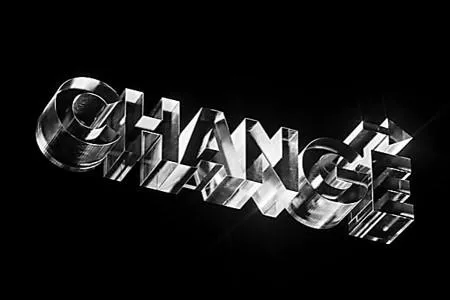
Navigating Change
by Brian Kuenning (Special K)
The modern world is changing faster than anyone can fully realize: from A.I. to modern dating, to unconventional family situations. With the creation of new jobs, new skill sets are required. New laws and policies are being enacted, as well as the latest medical and geopolitical crises, etc.
You can probably handle all of these forms of change in an ideal manner by considering them from the perspective of an investor. In other words, based on the risk and potential for change (uncertainty) involved, how much does it make sense for you to invest your time, energy, emotions, beliefs, and, yes, money? Yes, we have to consider all of these as assets that are invested appropriately or inappropriately.
Here are some examples of investing well and not so well in different situations.
In a job, it is essential to understand exactly how disposable or indispensable you are to a company. If someone can easily replace you, then invest yourself in the job accordingly. This means when you can be easily replaced, you have backup options for yourself, perhaps another job, side hustle, or business at the ready in case you are laid off, for example.
Analyze how likely a promotion is for you. If it is expected, then focus on performing the job very well so you can achieve it. Suppose it is impossible to be promoted or very unlikely. In that case, there is absolutely nothing wrong with doing the bare minimum to receive your paycheck because you don't have any incentive to do anything more.
In other words, invest your time, energy, emotion, money and beliefs about the job accordingly. Here a tragedy could come from over-investing in a dead-end job or from under-investing in a dream job, which is difficult for you to replace.
In a dating environment, ask yourself, how serious is this person about me? How replaceable am I to this person? Adjust your investments as needed. You can propose to make a relationship more or less serious if that would suit you better. However, it is essential to realize that people may not be completely honest about these things.
In many situations, people do not know what they are looking for or may be unable to admit to themselves the truth about how they handle relationships in general. Similar to the job scenario, a tragedy here can come from over-investment in someone you are not compatible with or under-investment in a dream partner, who cannot be easily replaced.
Consider a financial investing scenario. Financially, tragedy can only come from over-investment. It will never come from under-investment. Under-investment can only mean that you could have scored a more significant benefit. But that is not a tragedy at all.
Over-investment in an asset that is highly uncertain and takes a huge loss, now that, can create a tragedy that sets you back financially very heavily. Consider being conservative and stack up many smaller wins over time instead of going for risky big wins in the short term. You will reduce the risk of tragedy this way, and you can keep your life on track. Also, it is good to make safe investments so that you feel comfortable with the investment no matter how much you invest. As the amount increases you still feel secure about it.
Change needs to be navigated emotionally as well. Techniques like EFT and the Sedona Method are great for working through the emotions of a particular change. You can also sit with the feelings as if you are sitting with a friend who confides their problems in you.
This can work well because it allows you to be present and compassionate with the emotions without necessarily having to feel them again so profoundly. At the same time, you are offering empathy and compassion for yourself.
Maintaining mental flexibility and adaptability is important for change as well. Being able to shift gears, and change perspectives is critical. Being able to change our decisions and definitions of "the good life", happiness, etc. also makes us much more adaptable to the changes we experience over the course of our lives. For example, after one has been through a big change, one may have to change their definition of happiness for a while to something like just being happy to heal, stay home, relax, reinvent oneself, etc. because that is what is needed at that time. Later on, after this process is complete, one can go back to including more social time, more ambition, etc. as part of one’s understanding of happiness.
Practices like the yoga postures not only make us more physically flexible but mentally and emotionally flexible as well, which can make navigating change much more effortless and flowing.
Meditation or tai chi or even long walks can bring about a deeper sense of being centered and relaxed. This puts one in a state much better suited to handling changes maturely as changes come up in life.
The one thing that doesn't change in life is that everything changes. Let's be ready for all of 'em!!!!
